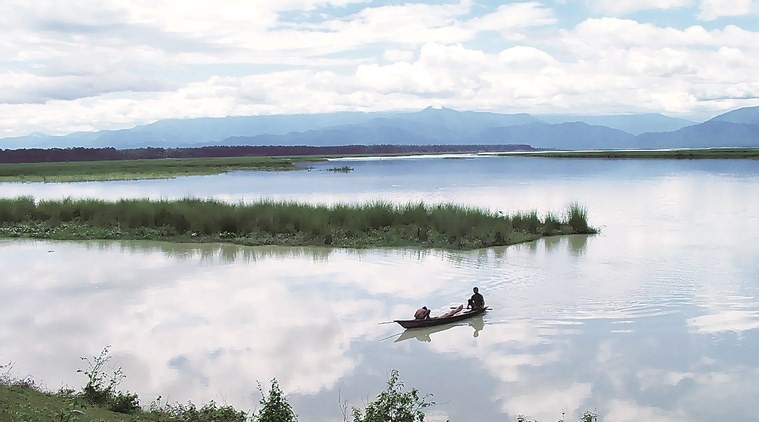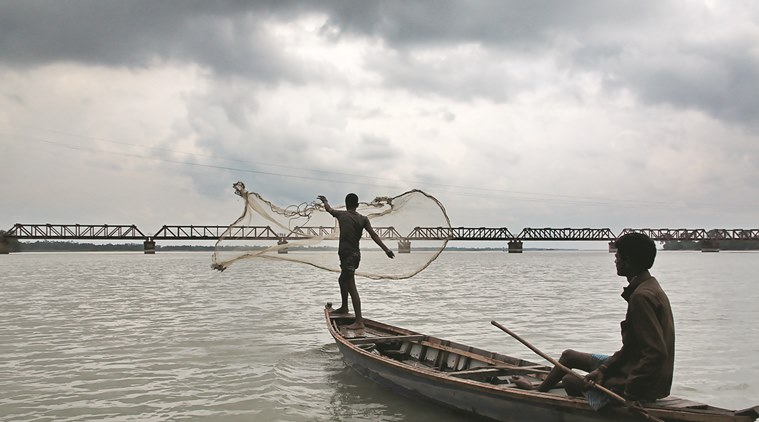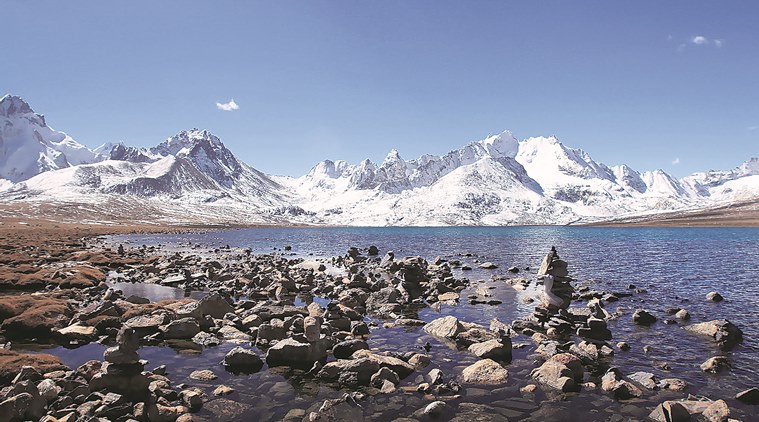Saying goodbye to the river Teesta
When they lost Teesta, their only child, a Bengali couple decided to embark on a remarkable journey to remember and celebrate her life.
 Samita and Utpal Chaudhuri.
Samita and Utpal Chaudhuri.
In Lachen, a small town located at an elevation of 2,750 metres in north Sikkim, the river Teesta hits boulders with unbridled might, splashing against houses, gurgling all through the night. Locals say Lachen Chu, as Teesta is known there, is like a naughty little girl running amok. Samita (58) and Utpal Chaudhuri (62) remember their late daughter and agree. “Every morning, before her school bus arrived, she would kick up a storm. The whole household would be running behind her, trying to stuff her mouth with little balls of rice while she ran from one room to the other, knocking things over. When she left the house, she would kick the iron gate open,” says Samita, pointing at the now stationary grille gate at the Chaudhuri residence in Salt Lake in north-east Kolkata.
On an unusually cold Kolkata afternoon, they are hundreds of kilometres away from Lachen but close enough to the river that evokes vivid memories. “I remember sitting by the Teesta in the summer of 2008, feeling the cold spray on my face and telling myself that my daughter is finally talking to me again,” says Samita, who teaches pharmacy at the Jnan Chandra Ghosh Polytechnic College, Kolkata.
 Utpal Chaudhuri’s photos of the Teesta at Gajoldoba, Jalpaiguri. (Photo: Utpal and Samita Chaudhuri)
Utpal Chaudhuri’s photos of the Teesta at Gajoldoba, Jalpaiguri. (Photo: Utpal and Samita Chaudhuri)
Almost 16 years ago, in 2000, Samita and Utpal lost their only daughter Teesta to encephalitis. She was 13. Teesta, who symbolised Utpal and Samita’s love for the mountains. Teesta, whose name was decided almost a decade before she was born. “We were classmates in the pharmacy department of Jadavpur University in the early 1970s. We were part of the mountaineering club and would frequently go to north Bengal and Sikkim for trekking. We would walk along the banks of this swirling blue-green river on moonlit nights. We fell in love during one of those trips and had decided that if we ever have a daughter, we would name her Teesta,” says Utpal, who retired as the assistant director of drugs control, West Bengal government, in 2013.
After Teesta’s demise, life came to a standstill. “We knew we had to do something to make things better, but we didn’t know what. We didn’t want to let go of her, we never can,” says Samita quietly. “When Teesta was about eight months old, we had decided that we will take her to north Sikkim to show her the birthplace of the river that inspired her name. We couldn’t get permission then, but in 2005, I told Samita that we should make that journey,” says Utpal.
 In Bangladesh. (Photo: Utpal and Samita Chaudhuri)
In Bangladesh. (Photo: Utpal and Samita Chaudhuri)
In the summer of 2006, sitting by the magnificent Tso Lhamo lake, the highest in India at 17,210 feet, Samita found peace. “That is where Teesta originates and that’s where I found my daughter,” says Samita.
It was at that very moment that an idea struck Utpal. “When Teesta was growing up, every year, on her birthday, I would take photographs of her, documenting her growth. I decided that I should do the same with my daughter’s namesake. Its birth, its journey into adolescence and finally, the woman it becomes,” says Utpal. Thus, the idea of a photobook was born, and eight years later, And The Teesta Flows (Niyogi Books), was published last year.
Charting the journey of the river meant travelling through two states and venturing into a different country altogether. Teesta flows through Sikkim and enters West Bengal; it finally joins the Brahmaputra in Bangladesh. “Logistically, it was a nightmare. We spent a good part of the past eight years (from 2006 to 2014) getting permission from the authorities,” says Samita.
 Tso Lhamo lake in north Sikkim. (Photo: Utpal and Samita Chaudhuri)
Tso Lhamo lake in north Sikkim. (Photo: Utpal and Samita Chaudhuri)
Over the years, the Teesta gave them some good stories, too. “We have made some lifelong friends. I specially remembers the Charuas of Jalpaiguri. They lead a very difficult life,” says Utpal. Charuas are temporary residents of chars, a land mass of fertile silts deposited in layers by the river as it changes its course. They are temporary residents because Teesta frequently changes course. “I came across a Charua, Madhab Biswas, who changed his home about 16 times in his lifetime. And he was only in his 50s,” says Utpal.
Right before their trip to Bangladesh to document the last leg of Teesta’s journey, Samita’s mother expired. “We didn’t know what to do. We had got all the required permissions and had we cancelled the trip, we couldn’t have gone back. So we decided to go ahead. The day we reached the confluence of Teesta and Brahamaputra in Rangpur in Bangladesh, my mother’s shraddh ceremony was being performed. Utpal had a few coins in his pockets, he asked me to toss them into the water. I did and felt peace,” says Samita.
Photos



- 01
- 02
- 03
- 04
- 05
























